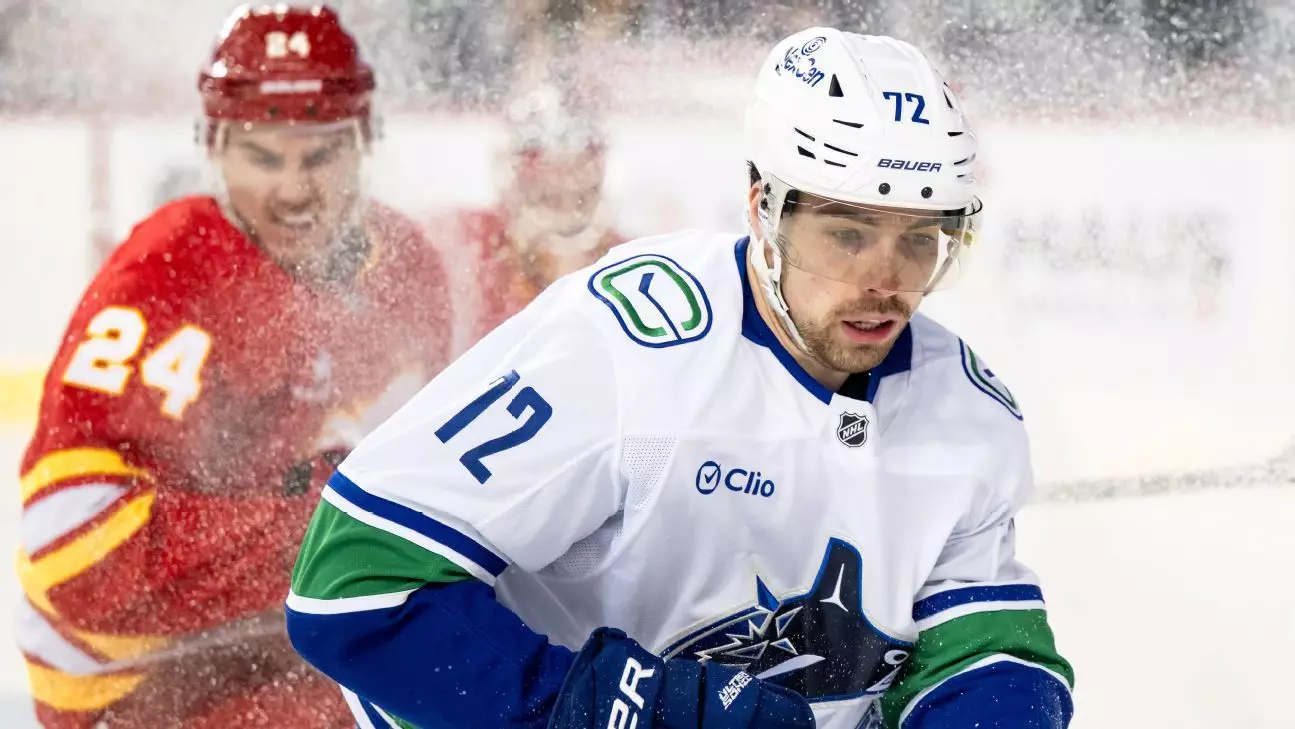The Vancouver Canucks find themselves teetering on the edge of playoff contention, facing an onslaught of injuries that could easily deter even the most resilient teams in the NHL. One of the latest setbacks involves their center, Filip Chytil, whose future for the season is in jeopardy due to ongoing concussion issues. Coach Rick Tocchet shared that Chytil has endured a rollercoaster ride of good and bad recovery days, making his return increasingly uncertain. With March 15 marking the day Chytil suffered the concussion from an unrelenting hit by Chicago’s Jason Dickinson, it raises the stakes for both Chytil and the team as they strive to keep their postseason dreams alive.
The impact of such injuries stretches beyond the individual’s health; it ripples through team dynamics and performance. Chytil’s inconsistencies on the recovery front, where he sometimes feels ‘good’ enough to skate, only to experience setbacks the following day, suggest not only a physical toll but a mental one as well. In hockey, where contact is constant and the stakes are high, ensuring a player’s readiness goes far beyond identifying physical symptoms. By even permitting Chytil to lace up his skates, the organization is caught in a double-edged sword of hope and responsibility.
Concerns About the Future
It would be remiss not to acknowledge the cumulative effect of concussions on a young athlete’s career. Tocchet’s comments indicate a delicate balance between optimism and caution. While the coach pointed out that Chytil’s current condition seems less severe than previous incidents, lingering concerns about the player’s long-term career path loom large. This raises an essential conversation around player safety that transcends the immediate season. As Chytil navigates this uncertain terrain, questions about how organizations prioritize the mental and physical well-being of athletes come into sharp focus.
Vancouver’s acquisition of Chytil in late January—part of the maneuvering to trade J.T. Miller—was met with excitement and anticipation. However, this twist of fate places even more pressure on the Canucks to adapt. The team already grapples with the absence of key players like Elias Pettersson and Quinn Hughes due to their injuries. Each of these players brings a unique skill set that helps the team in its pursuit of glory, but their absence leaves gaping holes in the lineup.
The Role of Team Culture
In struggling circumstances, a strong team culture rises to the surface. Tocchet stated, “you’re looking for culture stuff, right? Who’s all in and who’s not.” This sentiment highlights an element often overlooked in sports analysis—the importance of camaraderie and accountability among players. Even with injuries crippling the team, players like goalie Thatcher Demko emphasize the collective effort and resilience, maintaining that they will not use this adversity as an excuse to give less than their best.
As the Canucks battle for a playoff spot in an unforgiving Western Conference landscape, the stakes are not just about skill and stats. They involve a will and determination that are critical in overcoming adversity. Injuries have created a make-or-break scenario for the Canucks, forcing every member, whether on the ice or in support roles behind the scenes, to dig deeper and foster a sense of unity. This mounting pressure can either galvanize the team or lead to unraveling, and thus far, signs point toward the former.
The Psychological Toll of Struggle
The psychological component of this scenario cannot be understated. For players like Chytil, it’s about more than returning to action; it’s about ensuring a future free from recurrent injuries. The mental fortitude required to rebound after a concussion and the pressure of trying to push through physical limitations can be overwhelming. Throughout this taxing ordeal, it’s essential for the coaching staff and upper management to prioritize a player’s peace of mind and not just their physical return.
As they gear up to host the Seattle Kraken, a sense of urgency hangs in the air. Despite the odds, the Canucks demonstrate an unwavering spirit. Each player, in their own right, is making the commitment to not only show up but also to play with heart. This psychological resilience might just be the factor that ultimately propels them through adversity and into the desired playoff landscape. The unwavering belief that one can rise despite the odds is a powerful testament to the essence of the sport.


Leave a Reply